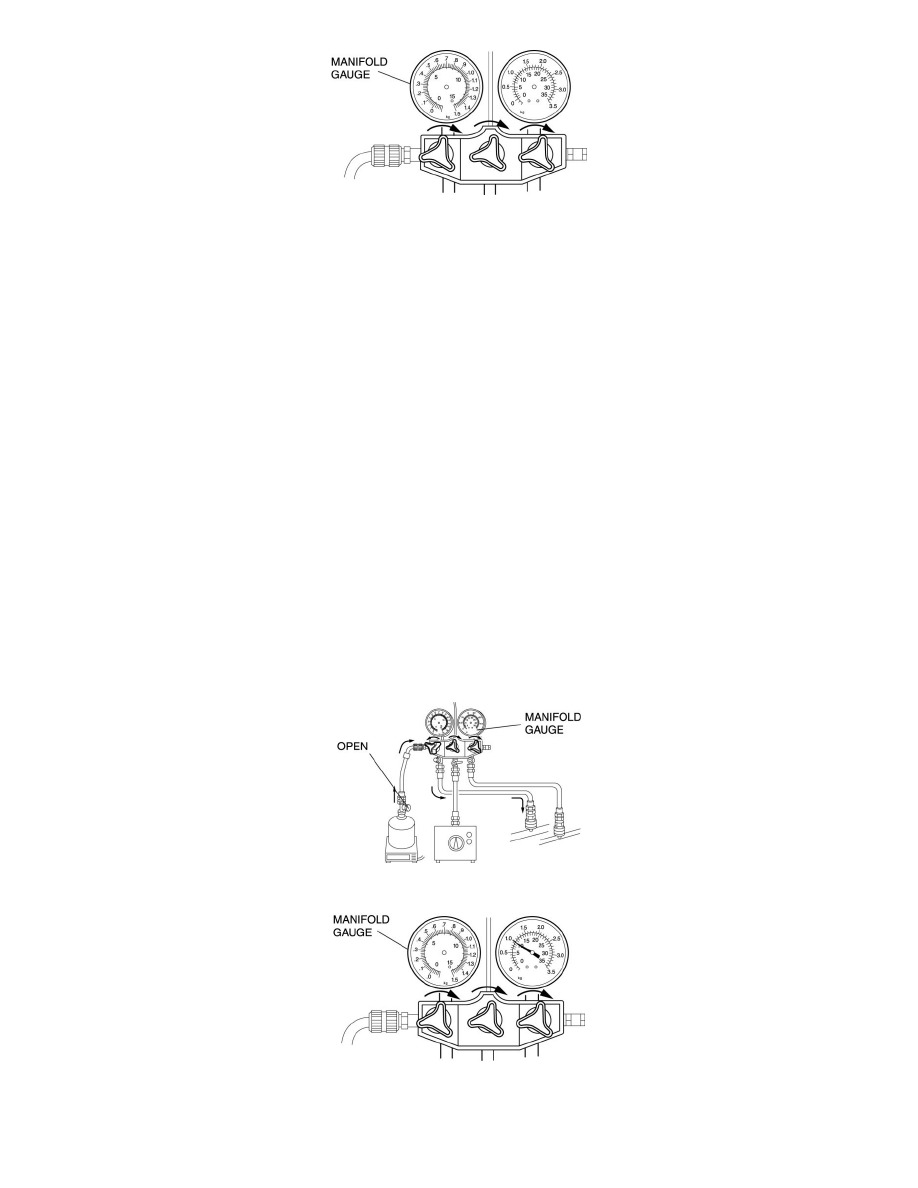6 V6-3.7L (2009)

Airtightness Check
1. Stop the vacuum pump and wait for 5 min.
2. Check the high- and low-pressure side readings of the manifold gauge.
-
If the reading has changed, inspect for leakage and go to Evacuation.
-
If the reading has not changed, go to Charging New R-134a Refrigerant.
Charging New R-134a Refrigerant
1. Open the valve of the refrigerant tank.
2. Weigh the refrigerant tank to charge the suitable amount of refrigerant.
WARNING:
-
If the refrigerant system is charged with a large amount of refrigerant when inspecting for gas leakage, and if any leakage should occur, the
refrigerant will be released into the atmosphere. In order to prevent the accidental release of refrigerant which can destroy the ozone layer in
the stratosphere, follow the proper procedures and charge with only a small amount of refrigerant when inspecting for gas leakage.
-
If charging the system with refrigerant using service cans, running the engine with the high-pressure side valve open is dangerous. Pressure
within the service cans will increase and the cans could explode, scattering metal fragments and liquid refrigerant that can seriously injure you.
Therefore, do not open the high-pressure side valve while the engine is running.
CAUTION:
-
Always being charging of refrigerant from the high-pressure side. If changing is begun from the low-pressure side, the vanes of the A/C
compressor will not be released and abnormal noise may result.
3. Open the low-pressure side valve of the manifold gauge.
4. When the high-pressure side reading increases to 0.098 MPa {1.0 kgf/cm2, 14 psi}, close the low-pressure side valve of the manifold gauge.
5. Inspect for leakage from the cooler pipe/hose connections using the gas leak tester.
-
If there is no leakage, go to Step 7.
-
If leakage is found at a loose joint, tighten the joint, then go to next step.
